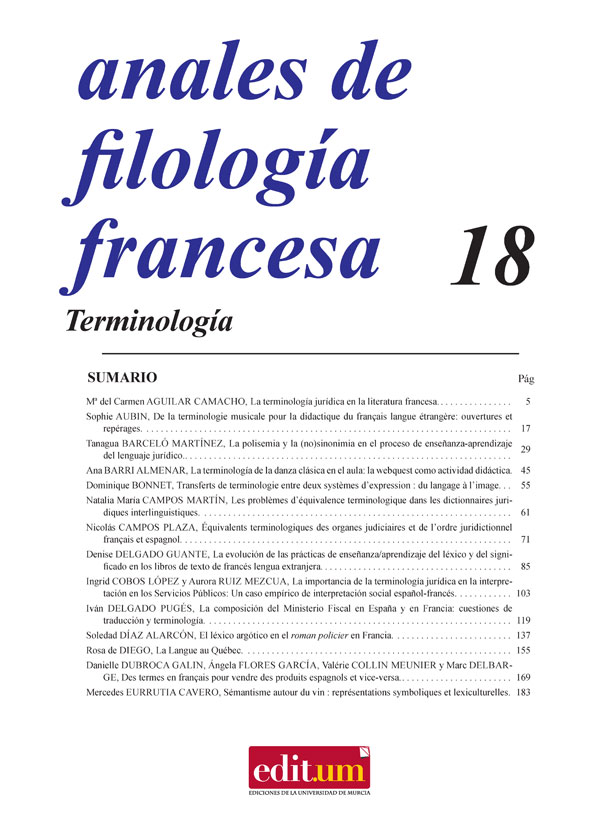Les problèmes d’équivalence terminologique dans les dictionnaires juridiques interlinguistiques
Résumé
Bilingual dictionaries are by no means tools without any type of communicative function. Rather, one of their main functions is to put into contact two worlds which are culturally different. If the realia do not exist in the target language, the terminology must find equivalents which represent those realia in a way in which they can be assumed and understood without any problem by the target audience. This may be case of the English judicial expression «common law», whose equivalents in French droit civil ou droit du citoyen or Spanish derecho consuetudinario attempt to comply with its generic and specific features. In this way, languages use their morphological and syntactic potential to fill in existing lexical gaps. Languages such as French and Spanish offer in certain areas of human activity, such as law or economy, a cultural heritage that makes them unique without isolating them.Téléchargements
-
Résumé220
-
PDF (Español (España))105
Las obras que se publican en esta revista están sujetas a los siguientes términos:
1. El Servicio de Publicaciones de la Universidad de Murcia (la editorial) conserva los derechos patrimoniales (copyright) de las obras publicadas, y favorece y permite la reutilización de las mismas bajo la licencia de uso indicada en el punto 2.
2. Las obras se publican en la edición electrónica de la revista bajo una licencia Creative Commons Reconocimiento-NoComercial-SinObraDerivada 3.0 España (texto legal). Se pueden copiar, usar, difundir, transmitir y exponer públicamente, siempre que: i) se cite la autoría y la fuente original de su publicación (revista, editorial y URL de la obra); ii) no se usen para fines comerciales; iii) se mencione la existencia y especificaciones de esta licencia de uso.
3. Condiciones de auto-archivo. Se permite y se anima a los autores a difundir electrónicamente las versiones pre-print (versión antes de ser evaluada) y/o post-print (versión evaluada y aceptada para su publicación) de sus obras antes de su publicación, ya que favorece su circulación y difusión más temprana y con ello un posible aumento en su citación y alcance entre la comunidad académica. Color RoMEO: verde.










